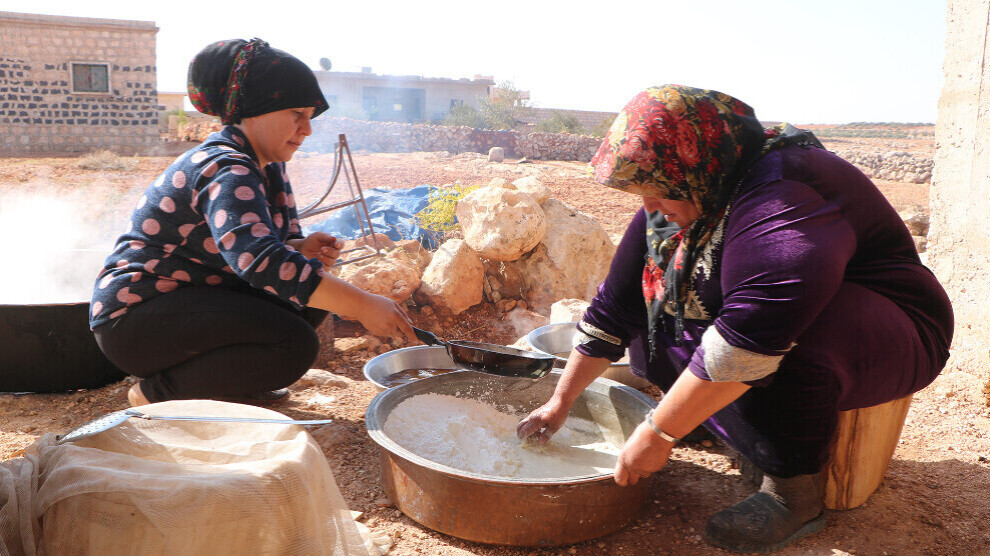Preparation for winter starts for women from Afrin
Displaced women of Afrin, who live in the Shahba Canton of North and East Syria, start making grape molasses, grape leathers and churchkhela to consume in winter. They learn how to make them from their mothers, grandmothers.

RAPARİN BAKER
Shahba-Women continue to preserve the culture, customs and traditions they learned from their mothers and grandmothers. Many citizens of Afrin had to leave their city to the Shahba Canton of North and East Syria when Turkey and Turkey-backed factions took the control of Afrin. The displaced women of Afrin start making grape molasses, grape leathers and churchkhela to consume in winter. Making these products is a tradition left to them by their mothers and grandmothers.
They make natural products
Speaking to NuJINHA, Sinem Habaş, who was forcibly displaced from Baadina village of Afrin’s Rajo town five years ago, said, “Our region is famous for its grapes and olives. We dry grapes, make grape molasses and many other natural products. We make these products every year at this time to eat them in winter. These products have many benefits for health since they are natural. These products are good at preventing anemia and play an important role in bone health.” Indicating that they keep making these products although they have been displaced, she said, “Our aim is to preserve our customs and traditions that we learned from our mothers and grandmothers.”
Churchkhela with walnuts and hazelnuts
Sinem Habaş’s daughter Wedad Ibish learned how to make these products from her mother. She noted that their displacement does not prevent them from preserving their traditions and customs. Speaking about ingredients of these products, she said, “We put grapes inside a large cooking pot after filtering and cleaning them to boil them. We make many products from boiled grapes. We also make churchkhela with walnuts and hazelnuts. We first thread walnuts and hazelnuts onto a string, and then we dip them in thickened grape juice and dry them in the shape of a sausage. We store them to eat in winter.”
[album=2941 type=full]
